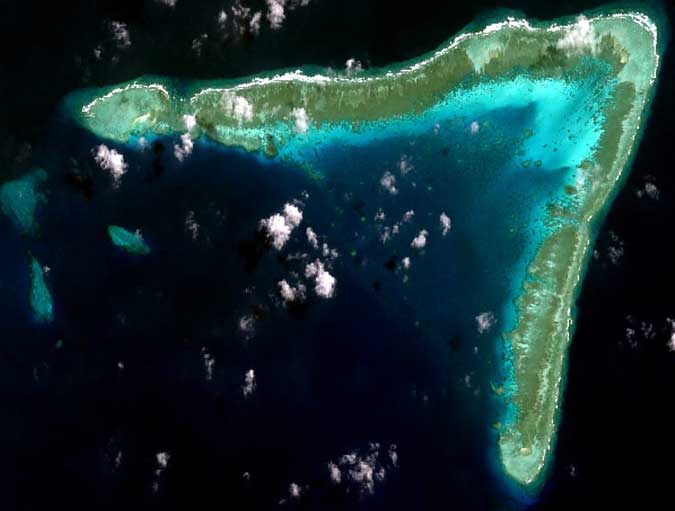
Thinking Beyond Politics
By Victor Andres C. Manhit

The complexity of the Indo-Pacific region has grown beyond the strategic competition between China and the United States. As China continues to disrupt the current regional security architecture, states have become increasingly aware of its potential impact on peace and stability in the Indo-Pacific. China’s aggressive posturing has also challenged the significance of multilateralism and strategic partnerships in maintaining a rules-based international order.
During the opening ceremony of the 9th World Peace Forum in Beijing, China’s State Councilor and Foreign Minister Wang Yi highlighted China’s rising confidence and assertive stance in international affairs. Echoing the message delivered by President Xi Jinping during the celebration of the 100th anniversary of the Chinese Communist Party, he said that China is not the same as it was 100 years ago, and “no one should underestimate the strong will and the extraordinary ability of the Chinese people to defend their national sovereignty, security, and development interests.”
Foreign Minister Wang Yi also shared his thoughts on upholding and practicing multilateralism, calling it the “only way to resist unilateral bullying and achieve lasting peace and common security.” He said that China would carry forward the common values of mankind and work with other countries to build a world of lasting peace and universal security.
This keynote address is an attempt to demonize the growing international rejection of Chinese expansionist aggression in the South China Sea. China’s recent actions in the West Philippine Sea undeniably prove that the real bullying is coming from Beijing. More than 200 Chinese maritime militia vessels were spotted along the Julian Felipe Reef (Whitsun Reef) early this year, renewing tensions in the West Philippine Sea. Despite the efforts of the Philippine government to de-escalate the situation, China has refused to cooperate and call for the withdrawal of these vessels. Until now, they have continued to linger in different areas within the country’s exclusive economic zone (EEZ), violating Philippine sovereignty and maritime rights under international law.
The persistent and illegal presence of Chinese maritime militia vessels demonstrates China’s capacity to circumvent international law in order to advance its political, economic, and military objectives. At the same time, it has also shown the weakness of the Duterte administration’s appeasement policy towards China. Declaring China as a friend and a partner for peace and development, President Duterte has set aside the 2016 arbitral ruling and remained silent on issues related to China’s expansionist agenda and gray zone operations in the West Philippine Sea. In a cautious attempt not to agitate China, President Duterte has even imposed a gag order on key cabinet officials after they criticized Beijing for its incursions in Philippine waters.
These actions veered away from the previous administration’s stance regarding China and the West Philippine Sea. The late President Benigno Aquino III took China to an international court and challenged the validity of its expansive territorial claims in the West Philippine Sea. Winning the maritime arbitration case, the Aquino administration also maintained close ties and sought support from traditional allies and partners.
On the fifth anniversary of the 2016 arbitral victory, the Philippines should be reminded of its role and commitment to the preservation of a rules-based international order. Although the pandemic continues to be the Philippine government’s most critical concern, the country’s sovereignty and territorial integrity must not be set aside. The country’s leaders must stand firm in asserting the Philippines’ maritime claims over the West Philippine Sea.
The Philippines does not only have every right to exercise its sovereignty over these maritime zones, but the country also has the sole right to patrol, protect, and harness its natural resources in accordance with international law. Consequently, the Philippine government must also recognize the security threats brought by China and stop tolerating any illegal incursions in Philippine waters.
President Duterte must also stop using the narrative that small states cannot stand up to China. The Philippines is not alone in the fight to defend its national sovereignty and territorial integrity. Its legal victory against China is recognized by the international community and like-minded states, including the United States, Australia, Japan, and India. Similarly, members of the Quad, G7, and NATO have also released their respective statements on China and renewed their commitments to uphold a rules-based international order.
In line with this, the Philippines must not allow China’s continuous refusal to acknowledge the 2016 arbitral victory and its blatant disregard of the rule of law. The Philippine government needs to step up and strategically work with partners and allies to create a comprehensive foreign policy and national security strategy that prioritizes the country’s territorial integrity, national interests, and shared values.
The future of the West Philippine Sea lies in the multilateral understanding and collaborative action of the international community to implement international laws, treaties, and agreements in the preservation of a rules-based international order. Upholding the 2016 arbitral victory is the first imperative step to maintain this order and the Philippine government must assert this right!
Victor Andres “Dindo” C. Manhit is the President of the Stratbase ADR Institute.